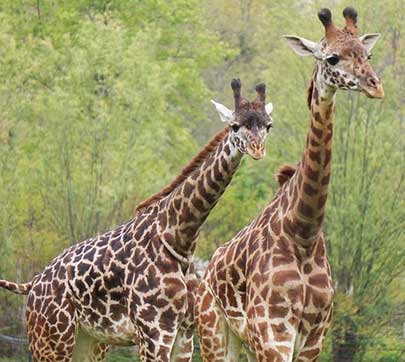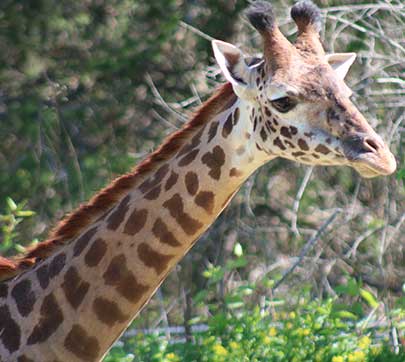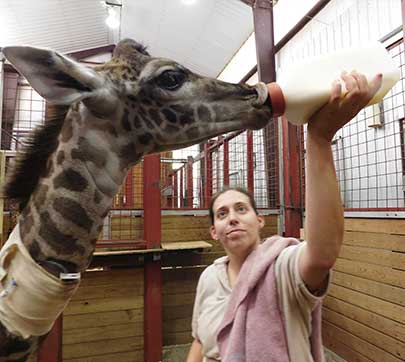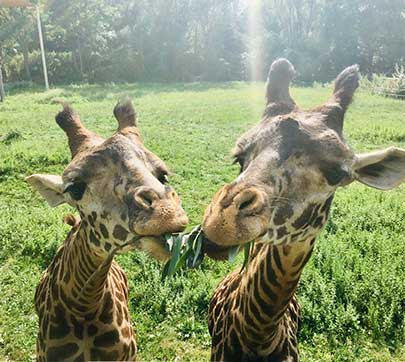All About Animals
Masai Giraffe
You can visit our giraffe during the warmer months in Franklin Park Zoo's Giraffe Savannah.
About the Masai Giraffe

Geographic Range:
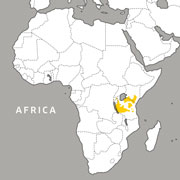
Class: Mammalia
Order: Cetartiodactyla
Family: Giraffidae
Genus: Giraffa
Species: camelopardalis
Subspecies: tippelskirchi
With its long legs and neck, the Masai giraffe is the world’s tallest land mammal. The giraffe has a huge heart—think of a 25 pound basketball—which generates the high blood pressure necessary to maintain blood flow up to its brain. Males often engage in “necking” —swinging their necks to strike each other with the side of their heads to determine hierarchy or show affection. This roughhousing doesn’t cause physical harm, but when confronted by a predator, giraffes will kick with deadly force in order to escape.


